|

|
Thanks for the Feedback:
…there are three key relationship interests that commonly get snagged on the brambles of feedback: our need for appreciation, autonomy, and acceptance.
|
111 |
|

|
Thanks for the Feedback:
When we are under stress or in conflict we lose skills we normally have, impact others in ways we don’t see, are at a loss for positive strategies. We need honest mirrors in these moments…
|
111 |
|
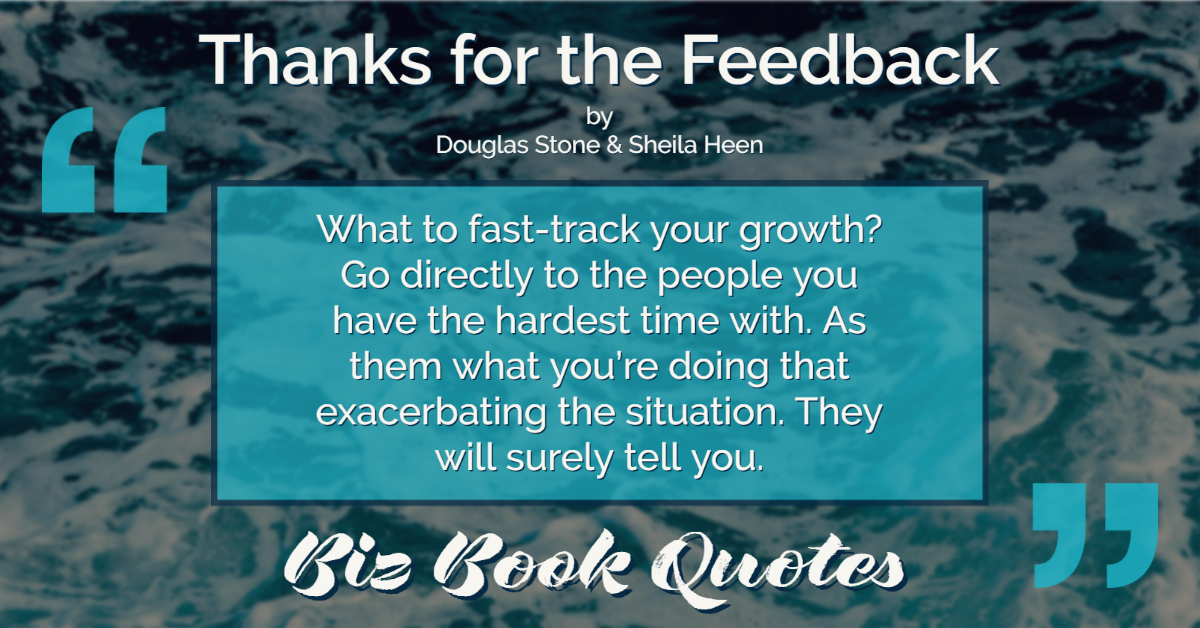
|
Thanks for the Feedback:
What to fast-track your growth? Go directly to the people you have the hardest time with. As them what you’re doing that exacerbating the situation. They will surely tell you.
|
111 |
|
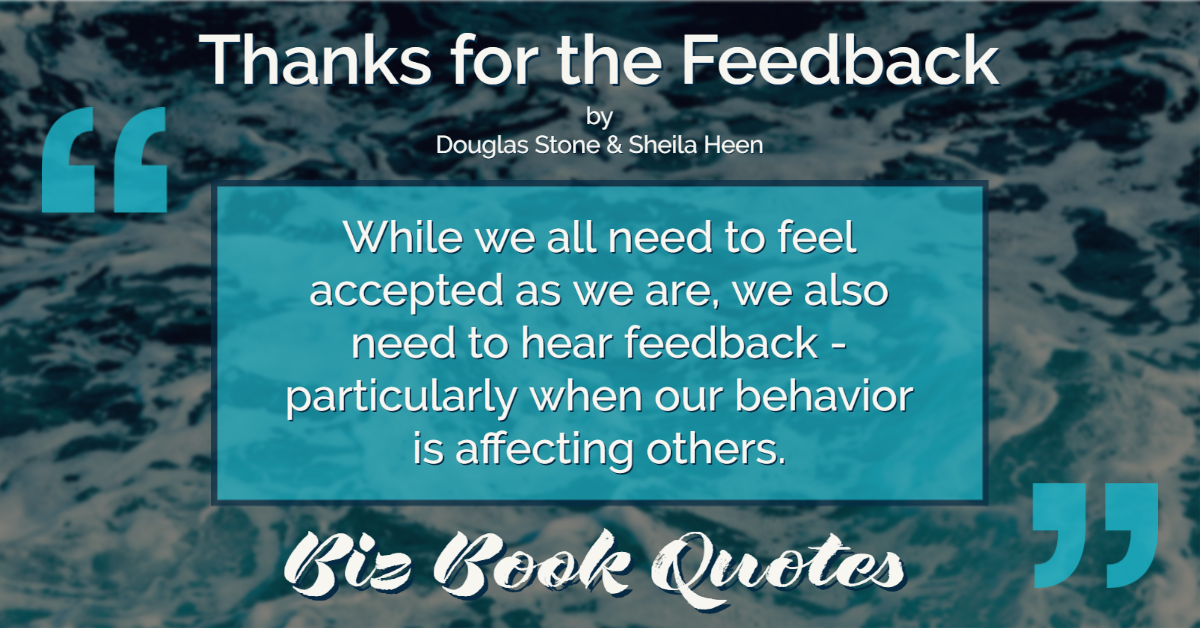
|
Thanks for the Feedback:
While we all need to feel accepted as we are, we also need to hear feedback – particularly when our behavior is affecting others.
|
114 |
|
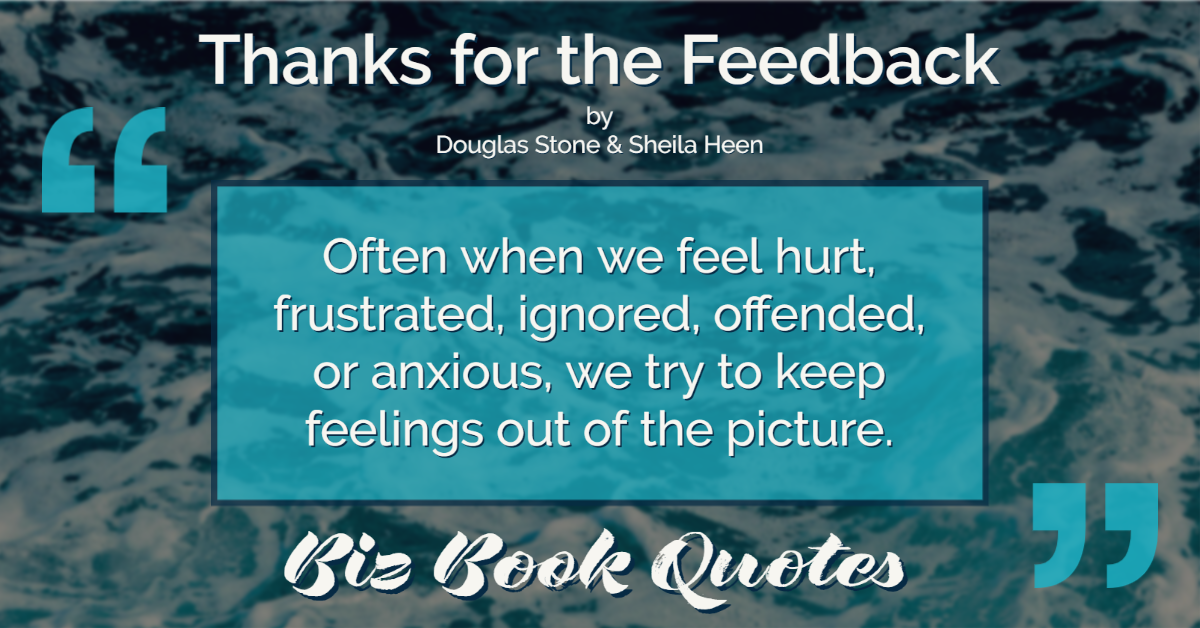
|
Thanks for the Feedback:
Often when we feel hurt, frustrated, ignored, offended, or anxious, we try to keep feelings out of the picture.
|
118 |
|
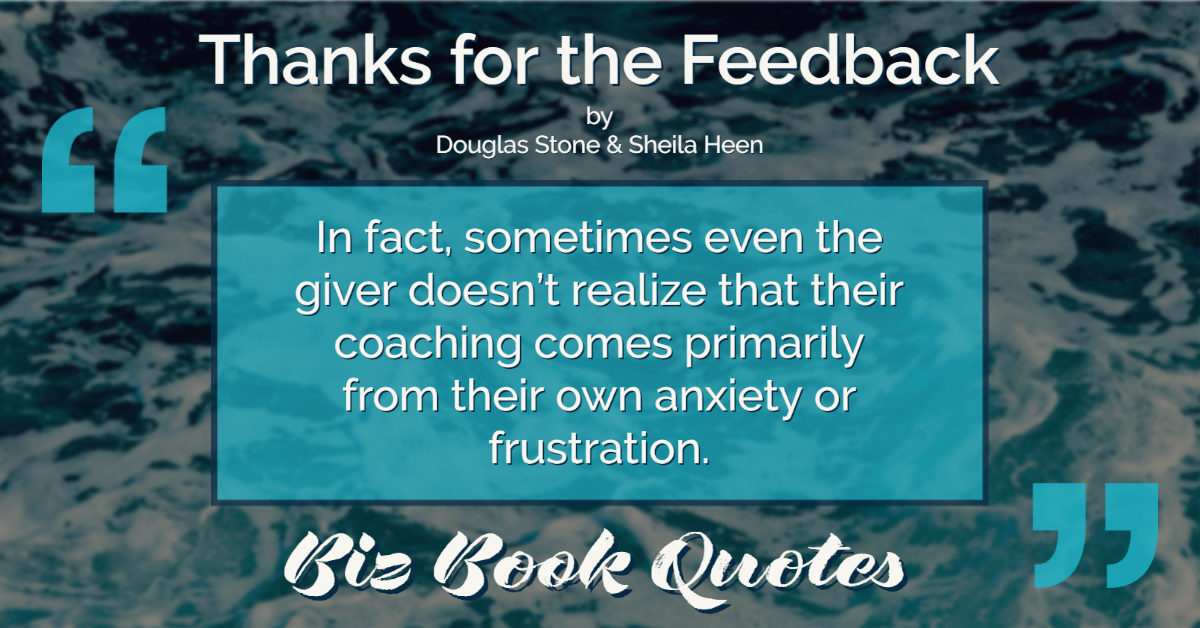
|
Thanks for the Feedback:
In fact, sometimes even the giver doesn’t realize that their coaching comes primarily from their own anxiety or frustration.
|
119 |
|
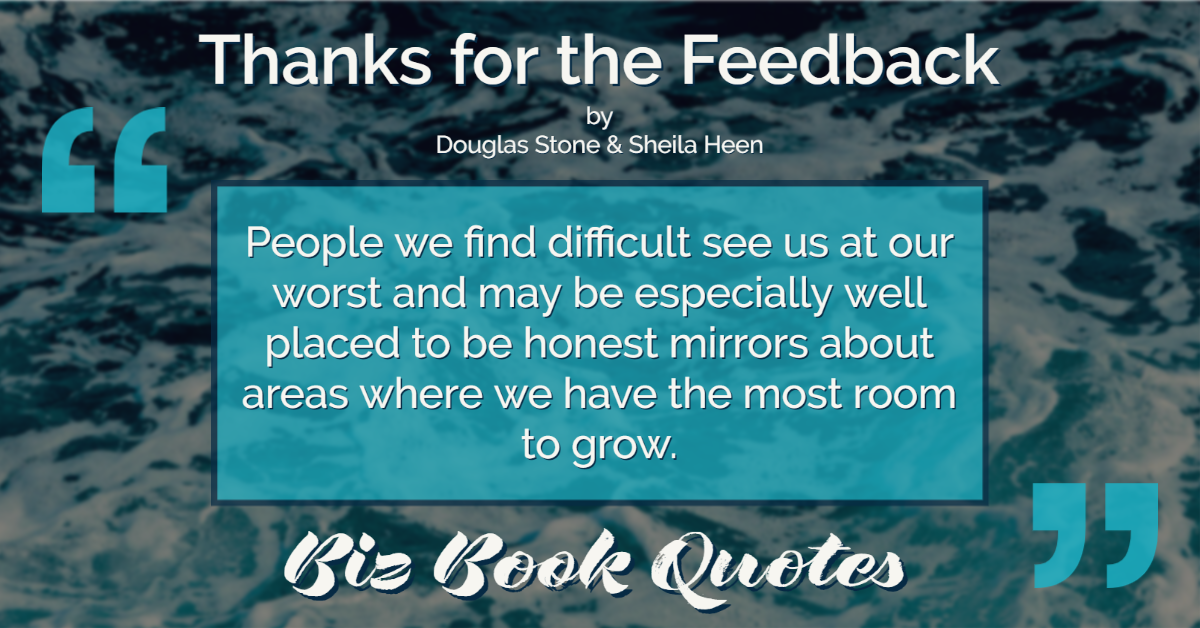
|
Thanks for the Feedback:
People we find difficult see us at our worst and may be especially well placed to be honest mirrors about areas where we have the most room to grow.
|
122 |
|
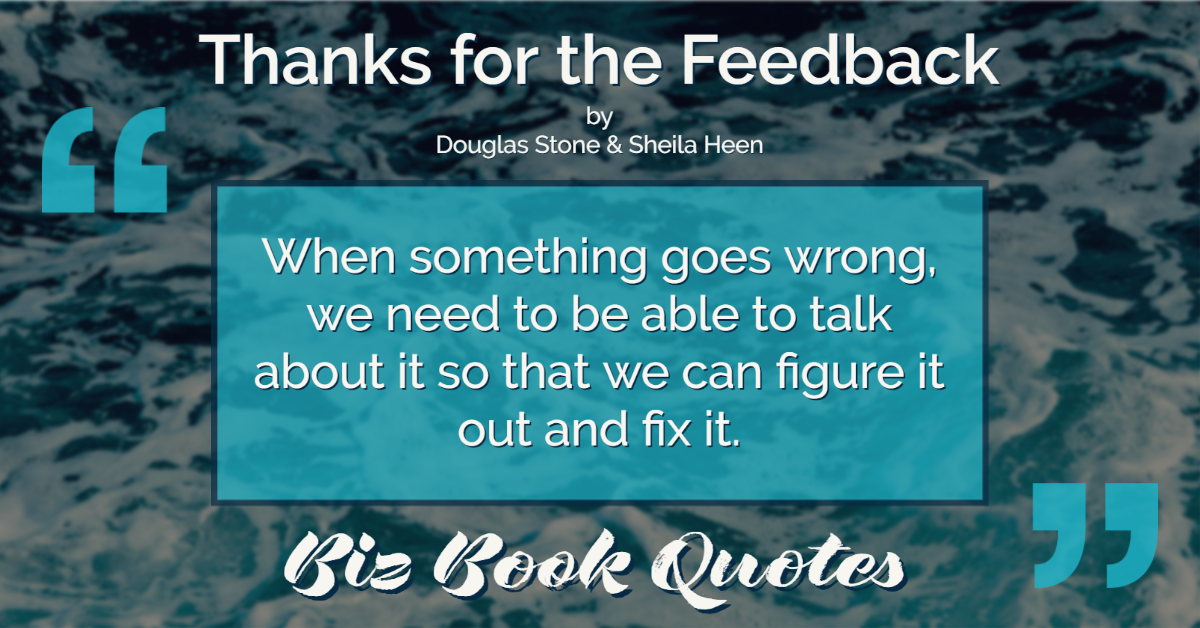
|
Thanks for the Feedback:
When something goes wrong, we need to be able to talk about it so that we can figure it out and fix it.
|
123 |
|
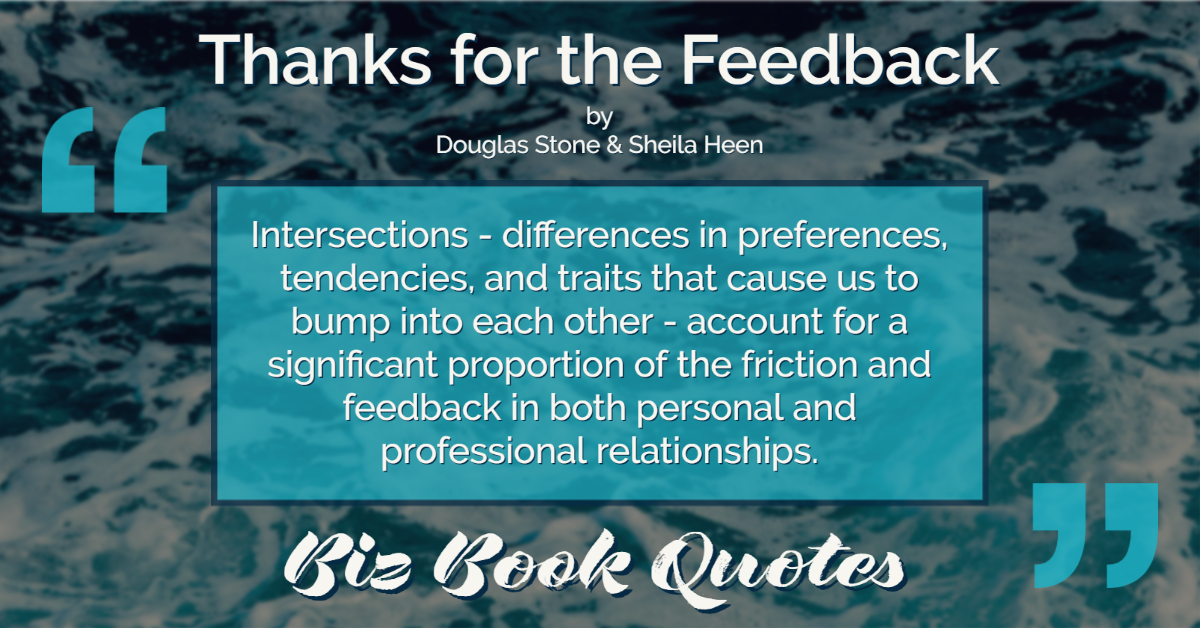
|
Thanks for the Feedback:
Intersections – differences in preferences, tendencies, and traits that cause us to bump into each other – account for a significant proportion of the friction and feedback in both personal and professional relationships.
|
128 |
|
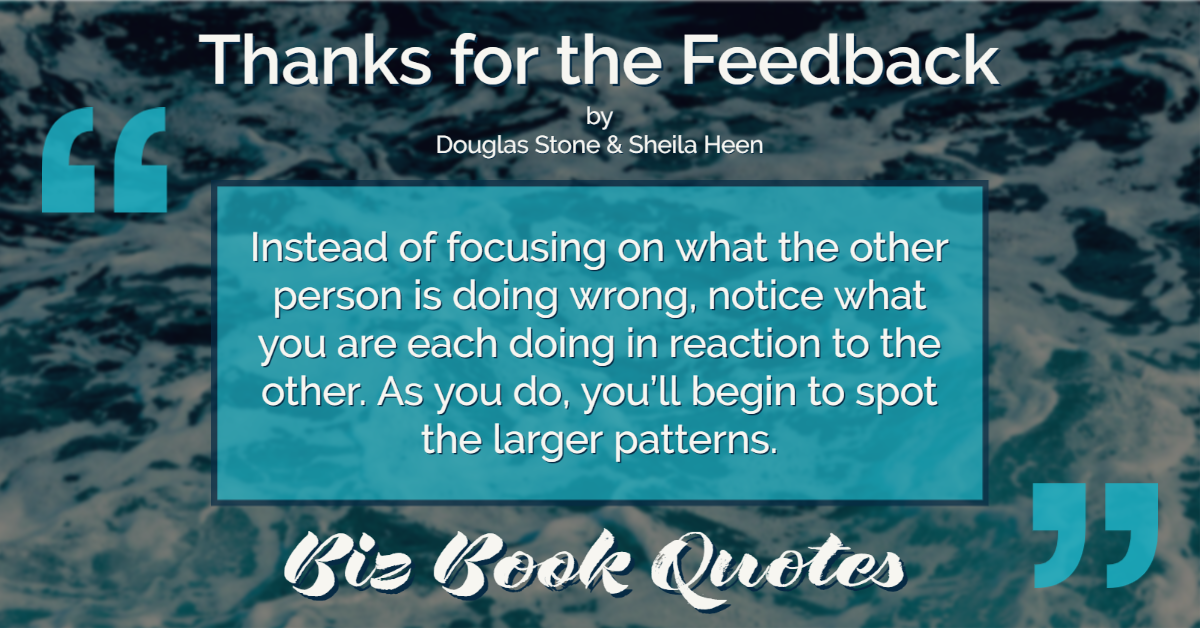
|
Thanks for the Feedback:
Instead of focusing on what the other person is doing wrong, notice what you are each doing in reaction to the other. As you do, you’ll begin to spot the larger patterns.
|
129 |











